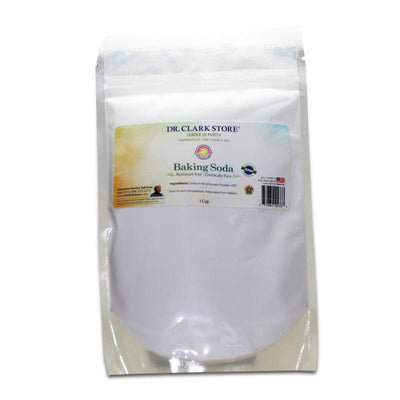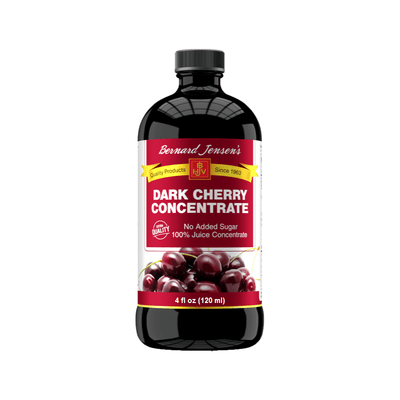The Benefits of Vitamin C, Dosages, and Differences Between Forms

The Benefits of Vitamin C
Vitamin C, also known as ascorbic acid, is a water-soluble vitamin that plays a crucial role in maintaining overall health. While the benefits of vitamin C are well-known, it's important to be aware of certain contraindications to ensure safe and effective usage. There is also a debate about the differences between synthetic and natural sources, the inclusion of bioflavanoids, and the use of liposomal forms.
Before we plunge into the synthetic versus natural debate, understanding the role of Vitamin C is foundational. Commonly known for its immune-boosting properties, Vitamin C, is a key player in collagen synthesis, aiding in wound healing, and acting as a potent antioxidant that can protect cells from damage. But here’s the twist in the tale – the Vitamin C most widely consumed is synthesized from substandard material, like GMO plants, and is often contaminated.
Benefits of Vitamin C:
- Immune System Support: Vitamin C is renowned for its immune-boosting properties, helping the body fight off infections and illnesses.
- Antioxidant Power: It acts as a potent antioxidant, protecting cells from damage caused by free radicals and oxidative stress.
- Collagen Production: Vitamin C is essential for collagen synthesis, promoting healthy skin, bones, and connective tissues.
- Enhanced Iron Absorption: It aids in the absorption of non-heme iron from plant-based foods, supporting individuals with iron deficiency anemia, but posing potential risks for those in danger of getting too much iron, like men taking iron supplements or using iron cookware.
The recommended daily intake for adults is between 75-120mg per day, but some studies and experts suggest that much higher amounts may be beneficial for certain conditions. Healthcare professionals, familiar with Vitamin C, know that there is no upper limit for vitamin C. People can build up bowel tolerance, by starting with 1000mg and working up to 8,000 to 10,000mg per day. While vitamin C is generally considered safe, high oral doses can lead to adverse effects such as diarrhea, nausea, and stomach cramps, so it is best to start slow.
- Dr. Hulda Clark: Says that Vitamin C in high doses could stimulate liver enzyme systems that detoxify heavy metals and pesticides from the blood and GI tract. She also taught that Vitamin C would aid the body’s use of copper (confirmed in this study). She recommends ⅛ TSP ascorbic acid with each meal, and additional 500mg with any snack.
- Dr. Bernard Jensen. Recommended Vitamin C in high doses and formulated this easy to take product.
- Dr. David Brownstein: States that inflammatory are nearly impossible to overcome without the use of supplemental Vitamin C. He recommends 3000-5000 mg per day.
Brands like Dr. Clark’s ensure no binders, no release agents, etc, just pure Vit C in gel capsules free of carrageenan, surfactants, and BSE. Dr. Clark also offers a pure ascorbic acid from non-GMO corn.
Which Form of Vitamin C is Best?
Since its discovery, scientists have been able to harness the chemical origin of Vitamin C to mass-produce the synthetic version, ascorbic acid. This process has allowed for fortifying foods, producing supplements, and addressing wide-spread deficiencies. However, the synthetic form in many cases has been found to contain unnecessary additives like heavy metals. Studies have also found that it can increase iron absorption to dangerous levels (1).
The Bioavailability Debate
The bioavailability of a nutrient is the crux of its efficacy – how well does the body absorb and utilize it? Numerous studies advocate that Vitamin C derived from natural sources, particularly whole fruits and vegetables, is more bioavailable than the synthetic variety. Acerola cherry, for example, has been shown to have a bioavailability 1.63 times higher than synthetic ascorbic acid (2).
Another study found that the human body can absorb only 50% of synthetic Vitamin C, compared to natural vitamins (3). This stark contrast in absorption rates emphasizes the inefficacy of synthetically derived nutrients, a phenomenon attributed to the complex matrix of bioflavonoids and co-factors present in natural sources, which facilitate enhanced nutrient delivery. One expert writes: “There appears to be a tendency to label those who profess that natural vitamins are better than synthetic ones as quacks. This broad brush label may be stifling legitimate nutrition research” (4). The author goes on to say that
Can Vitamin C Cause Allergies? Not if it’s Pure!
One of the most alarming discoveries in the realm of synthetic Vitamin C is its potential allergenic properties. The reason is that ascorbic acid that is not tested for safety can contain traces of heavy metals,t hat catalyze the formation of an extremely high concentration of free radicals, the likely culprit for allergic reactions. This revelation highlights a substantial risk factor associated with synthetic supplementation that is absent in natural sources.
High vitamin C foods, like Acerola, are full of phenolic and flavonoid compounds. In a recent 2024 study, the authors found that Acerola had at least 55 flavonoids, and 21 non-flavonoid such as phenolic acids. These compounds have been shown to be antioxidant, antibacterial, antihyperlipidemic, anti-inflammatory, antihyperglycemic, and hepatoprotective (5).
Individuals who are allergic to commercial ascorbic acid often react intensely to even a milligram or two, while experiencing no reaction to natural foods that boast substantial Vitamin C content. Taking ascorbic acid by itself is really only advised when you are also consuming a high amount of natural vitamin c-containing foods, such as kiwi and bell peppers (both have well over the daily recommended intake levels in one serving).
Conclusion
Vitamin C as ascorbic acid has many uses, from skin and hair care, to adding to homemade drinks, salad dressings, canned goods and marinades. As a supplement, it should be taken with a high Vit C fruit or vegetable. The best sources are kiwis and bell peppers, with some other good sources being avocados, lettuce, and cabbage.
Kiwi: 1 cup has 167mg or 185% of the Daily Value (source)
Bell Pepper: One bell pepper has 185mg, or 204% of daily value (source)
Even when cooked, these foods contain enough co-factors to ensure you are not exhausting them just to process a higher amount of Vitamin C.
Dr. Clark recommended only vitamin C from non-GMO products, which is why we offer a natural form of Vitamin C as ascorbic acid, and another form with rose hips included if you need the added bioflavonoids and have a hard time getting them from food.
Remember to consult with a healthcare provider before starting any new supplement regimen, especially if you have underlying health conditions or are taking medications that may interact with vitamin C. Potential Contraindications of Vitamin C:
- Interference with Certain Medications: Vitamin C may interact with certain medications like chemotherapy drugs, statins, and blood thinners, affecting their efficacy.
- Increased Iron Absorption: Men should avoid taking vitamin C supplements with iron as it can enhance iron absorption to toxic levels.
- Need for Balanced Nutrient Intake: Vitamin C works best in synergy with other nutrients like vitamin E, zinc, and selenium, emphasizing the importance of a balanced diet.
DIY Liposomal Vitamin C
Some people prefer liposomal vitamin c, which provides enhanced absorption and no risk of diarrhea from large amounts.
Items needed:
- Ultrasonic cleaner for jewelery
- 12oz water at room temp
- 3 TBSP Sunflower lecithin or egg lecithin granules.
- 2 TBSP Pure Vitamin C crystals (ascorbic acid)
Steps:
- Put lecithin in 1 cup of water and let sit for a couple hours.
- Place Vitamin C crystals in ½ cup water and blend for 5 mins on low
- Add lecithin to blender and blend another 5 mins
- Pour the lecithin/Vitamin C mixture into the ultrasonic cleaner machine and run for two cycles of 3 minutes each.
- Store in a jar and refrigerate
Dr. Clark's Vitamin C Products:
- Vitamin C Capsules w. Rose Hip Bioflavonoids: Easy-to-swallow capsules for convenient daily supplementation.
- Vitamin C Powder: Versatile powder form that can be added to beverages or foods for customized intake.




No mention is made is ester C, which is not acidic as normal vitamin C.
Any comments?
Leave a comment